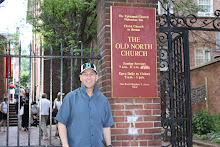Searching questions by faithful people can be very valuable, and God knows the numbers of times when I have asked questions about Christianity, addressing such questions both to myself and in dialogue with others. I definitely appreciate the God-created part of us that seeks after truth, with no sincere, reasonable question being out of bounds. This is one of the best things that God did in creating us. My own response to such questions in my life has been to do tons of reading, both of solid believers and of those who are not, in order to hear the best of both arguments. So I have read ancient critics like Celsus, ancient gnostic heretics, ancient philosophers, and lots of church history, whether doctrinal history or just church history. I have also tried to read modern secular philosophy, especially those who directly challenge the Christian faith (like a David Hume or Feuerbach or Nietzsche). I have also read much in the area of NT criticism and critical theology, including FC Baur, DF Strauss, Bultmann (lots of Bultmann), Dibelius, Schweitzer, Norman Perrin, Schubert Ogden, and the Jesus Seminar guys and their friends (Spong, Borg, Crossan, Funk). I have also read those who critique the challengers of Christianity, like Ben Witherington, NT Wright, Scot McKnight, and a number of others who have written alongside or who have preceded these three (FF Bruce, Ralph Martin, Ward Gasque, TW Manson, Charles Moule, and many others). My point is not to give my reading resume, it is to say that some of those whom I read or with whom I have personal discussions are motivated for whatever reason to ask/answer tough questions without being willing to turn over every rock for clues, and I think this greatly hampers their searches. I personally know several former Christians who lost their faith because they read a few critical voices and stopped there, convinced that the faith side of things had little or nothing to say in response. They were/are wrong. Read Borg, but read NT Wright (and not just the popular stuff he writes). Read Crossan, but read Ben Witherington. Writers like Wright and Witherington are of substantial ability, trained by some of the best, and they make defensible arguments that give credence to Christianity. Read William Lane Craig, Anthony Thiselton, and Kevin Vanhoozer. All of these faith-filled writers are acutely aware of all the critical issues, and they still believe in the Resurrection! The idea that the critics are the ones who have a corner on honest seeking, sound logic, and historical exactitude is inaccurate and a distortion.
I write such things because we are all called to be ready to give an answer for the hope that lies within us. I also want for the some or many who have questions to understand that discerning, challenging questions can be asked and answered in a context of absolute faithfulness. The truths of Christianity and the integrity of the Bible can be rationally and spiritually upheld in the context of vigorous intellectual discussion and rigor, and we as traditional, orthodox Christians have nothing to fear from the critics, the philosophers, the academics, the intellectuals, the scientists, or whomever you wish to read--unless we refuse to give as much place to the defenders of the faith as we do to the critics. Just as bad as a closeminded Christian is a closeminded critic or heretic who rules out the thoughts of defenders of the faith as if there is not a chance that the faithful could be correct or as if the faithful are the only ones unwilling or incapable of thinking and researching well without bias. I have given abundant room to the critics in my own personal search; searchers, seekers, and critics need to extend the same effort in giving room to qualified, respected defenders of Christ.
Tuesday, April 26, 2011
Subscribe to:
Post Comments (Atom)

No comments:
Post a Comment